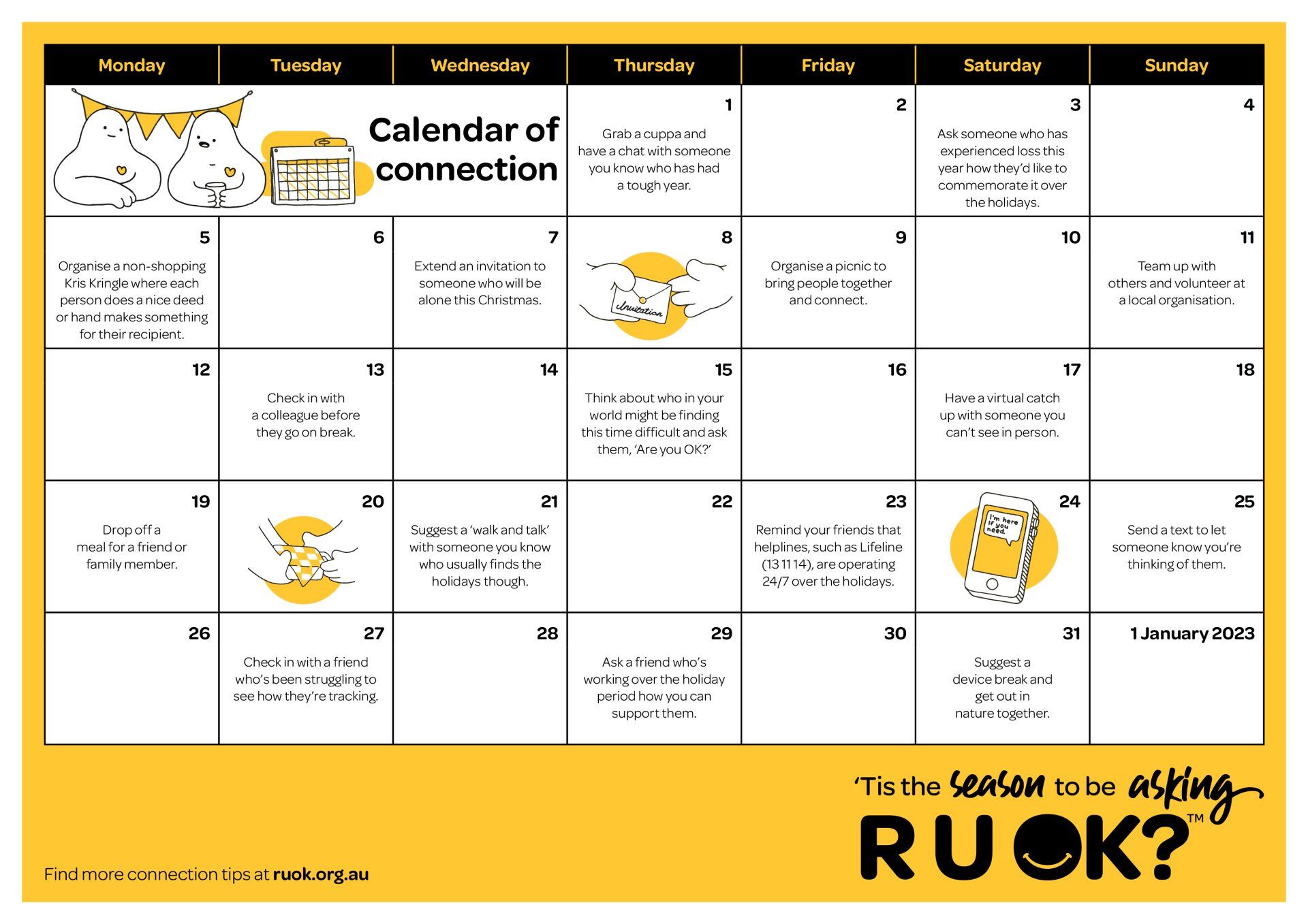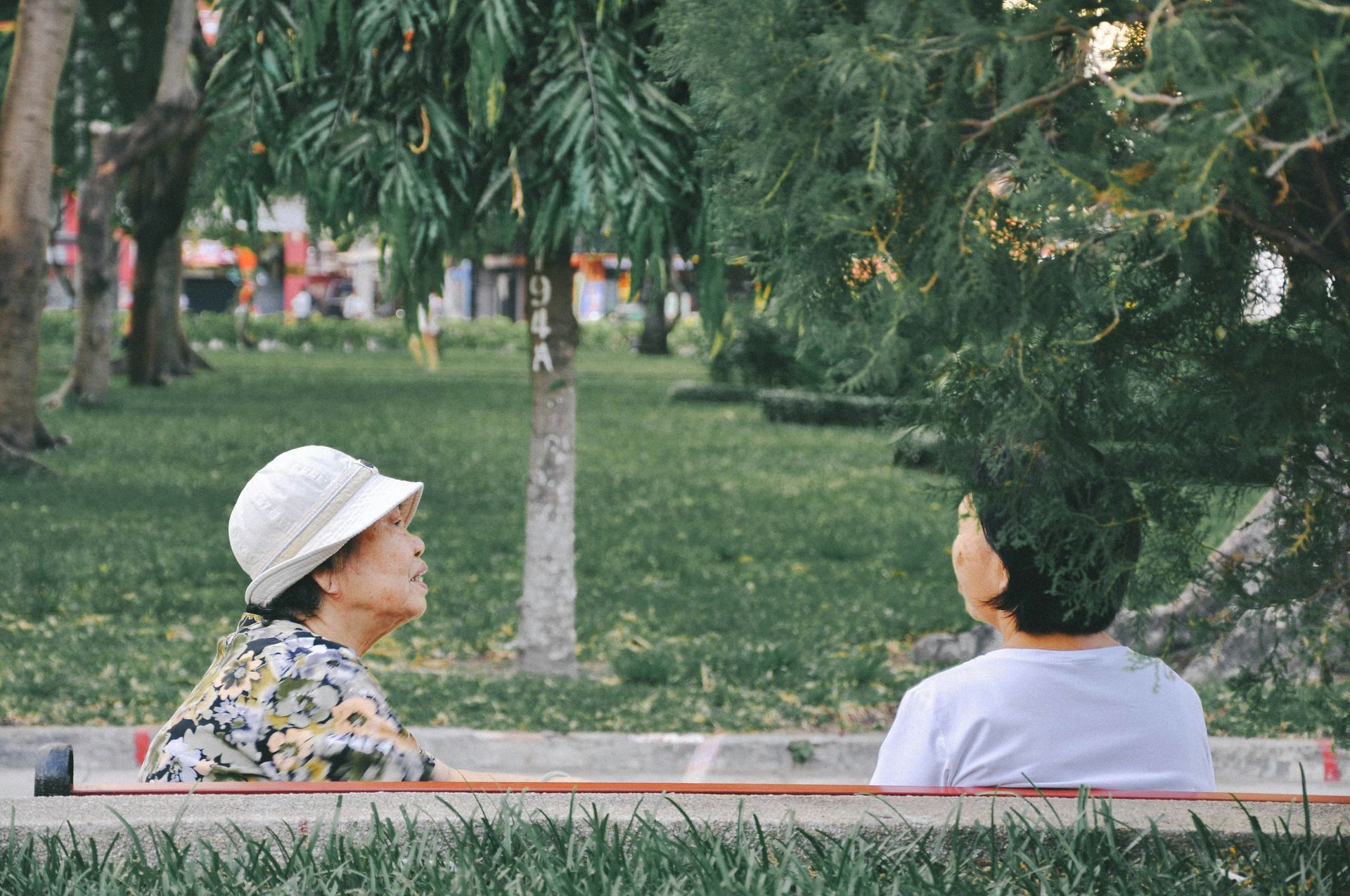Creating Healthy Holiday Habits
It's easy to feel a little flat as we reach the end of the year. Creating healthy habits is a great way to recharge the batteries.
As the holiday season starts to kick off, it is important to reflect on the year, which pushed many people to their limits and challenged their mental health and wellbeing. Across the country, the impacts of COVID-19 have continued, having a vast impact on people’s mental health.
Furthermore, ongoing global tensions, war and natural disasters have collectively taken a toll on wellbeing. So if you are feeling lethargic, burnt out and like you just don’t have anything left in the tank to get through the next few weeks, you are not alone.
The Centre for Corporate Health have come up with these strategies to help people recharge over the festive period. If someone you know is struggling, perhaps you could suggest some of these wellbeing activities, or, better yet, do them together.
Take a digital detox
Taking a digital break can be an essential part of looking after your mental wellbeing over the Christmas period, particularly if you’re struggling with loneliness, low self-esteem or if you are prone to engaging in social comparisons.
If you find yourself mindlessly scrolling on social media because you are bored, try using a meditation app instead. If you are seeking connection, consider ringing someone or sending a text and arranging a physical meet up. Other things you could try include:
- Setting a time limit on your phone use
- Stop following social media accounts that leave your feeling flat or frustrated
- Switch of all notifications
- Don’t bring the phone to meals
- Go for tech free walks in nature
- Read hard copy books or magazines
The Calendar of Connection provides connection ideas to help you lend support to someone who might be struggling over the holiday period. Download yours here.
Make sleep a focus
Adults who sleep between 6-8 hours per day tend to live longer. Research has found a strong link between mental health and sleep, with depression and anxiety diagnoses both featuring disrupted sleep as a symptom. The holiday season is a fantastic opportunity to focus on your sleep before you commence the new year and another busy work year.
Top up your bucket
It is important to intentionally protect your recovery space. While a lot of people are continuing to work remotely from home, ensure that your home promotes feelings of recovery and relaxation, and does not remind you of work. How can you change the way your home looks visually? Put on an out of office reply, put away all work-related items and establish some rules for yourself. Book activities even if they are mundane – create an ‘at home’ itinerary including plenty of down time. During your holiday period, determine what you find valuable and meaningful, and schedule in these activities. Discuss this with relevant others (family members, friends) to have a collective experience.
Create a holiday routine
Set up a holiday routine to enhance your ability to “switch off” and recharge effectively. Make a plan of activities that you enjoy, and create new summer holiday traditions. Tap into your wellbeing strategies and aim to implement one wellbeing strategy every day.
Practice gratitude
Being grateful for what you have has many positive effects on your resilience and motivation. Expressing gratitude regularly increases happiness, self-esteem and motivation and reduces depression. Only 15 seconds of gratitude each day can promote positive mind-set and reduces stress.
Give back… it’s good for you.
When you help others, you experience positive emotions which helps to reduce stress, increase your physical health and increase your longevity. Scientists have found that antibody levels in your body increase immediately after witnessing or initiating generous acts. Here are some ways you can give back, this holiday season:
- Donate gently used toys or clothing to a local non-profit organisation in your community and see how you can brighten another child’s holiday season.
- Put together a goody package for someone else less fortunate in your community or overseas.
- Get your family together this Christmas and make an effort to go out into the community and give back with a local non-profit organisation (e.g., soup kitchen)
- Making someone’s day better through kindness (e.g., inviting someone over to celebrate Christmas who you know lives alone or is separated from family)
If you or someone you know is doing it tough, Lifeline is available 24/7 through the holiday period on 13 11 14 and you can find other services and supports here.
Sign up to our newsletter for conversations tips, news and insights from our staff, experts and supporters.


















